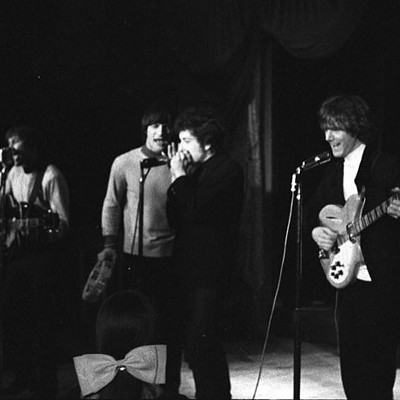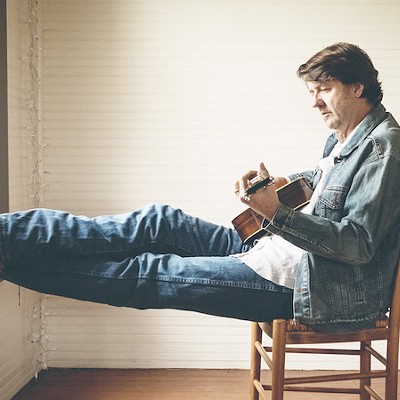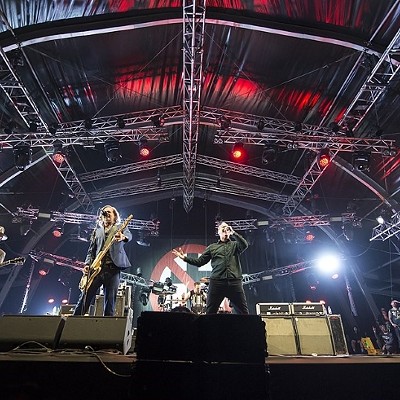Punk bands like The Clash have been lauded by critics and fans spanning across the globe, while other superb acts like The Carpettes have remained stuck between the cracks of history. This is almost tragic, since their blend of fine-etched, unblemished pop-tinged punk was just as riveting as The Boys and The Vibrators.
Friday, the band launches their first-ever American tour at Mango's, hopefully gaining some much-deserved attention for their brand of fervent tunes. Never heard of the Carpettes? Allow bassist George Maddison to introduce you.
Rocks Off: Like so many bands (999, The Clash, The Jam, etc.) of the 1976 punk era, you had roots preceding it. How did your band Brown Sugar prepare you for that sudden explosion of culture and music?
George Maddison: Hehe..... Brown Sugar! This was mentioned in an interview years ago, and it now crops up regularly. Brown Sugar wasn't really a working band, just a bunch of school friends, although it did include the three original members of The Carpettes.
However, even then back in 1975 we were trying to play Rolling Stones songs, Chuck Berry ... not the progressive rock, which was prevalent at the time. We only played a couple of gigs before we split up and went off to different colleges, universities, jobs, etc.
RO: Small Wonder labels had a very diverse roster, from art-punk like the Cure to street punk like the Cockney Rejects. Having two singles on the label, did you feel bands felt like a community on the label, despite differences?
GM: We were signed by Small Wonder in the very early days of the label when we replied to an ad in the national music press asking for demo tapes. Before The Carpettes, Small Wonder had only released two singles from local East London bands, and they were just beginning to cast their net a bit wider.
When we travelled to London to record the singles, we did meet some of the other bands on the label, like Patrick Fitzgerald and The Leyton Buzzards, but there was no "community." The label simply reflected the taste of the owner, Pete Stennet, who wanted to give new bands a start. He rarely released more than one record by each act.
We were honoured with two, and he always moved on to discover fresh talent. It was only in the later days of the label, after we had moved on, that he seemed to concentrate on just one or two acts.
RO: Having performed two sessions for the late DJ John Peel, how do you feel he impacted listeners the most? Is there any such equivalent today?
GM: At the time, BBC Radio One was the only national radio station playing "pop/rock" music. However, most of the disease were forced to play pretty bland, unadventurous material, dictated by the music charts. John Peel had a nighttime show, and he was given free reign to play anything he wanted and had been doing so since back in the hippy days of the late '60s.
He had a genuine love of the music, and he enthusiasticly championed the new music coming out around 1977-78. He had a huge effect on changing the music scene. Basically, his show was the only place to hear new bands, and he helped the careers of countless bands, ourselves included. Nowadays there are more BBC stations and some of them concentrate on new music, but they will never have the nationwide effect that the Peel show had. As for the local commercial stations, forget it!
RO: Your appearance on The Old Grey Whistle Test, including "Johnny Won't Hurt You," is a succinct slice of taut pop and limber, reggae-inflected post-punk a la The Members and The Ruts. Being 1980, how did the band fare with audiences splintered into ska/two-tone, Oi! and mod factions?
GM: The Carpettes were formed in the early days of punk/New Wave, and these factions didn't really exist. It was just the new bands vs the old established bands. I suppose it was circumstances and geography that delayed our records until 1980. We never felt connected with any of the factions you mentioned, which could possibly have been a commercial problem for us, as has often been mentioned before ... lack of "image," etc.





